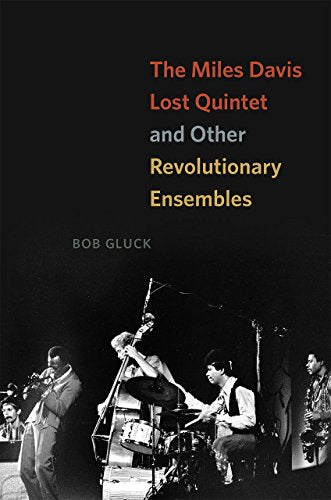
CHICAGO DISTRIBUTION CENTER - 5510
The Miles Davis Lost Quintet and Other Revolutionary Ensembles
Author: Bob Gluck
Publisher: University of Chicago Press
The Miles Davis Lost Quintet and Other Revolutionary Ensembles
Juilliard Store
144 West 66th Street
New York NY 10023
United States
Choose options
The Miles Davis Lost Quintet and Other Revolutionary Ensembles
Juilliard Store
144 West 66th Street
New York NY 10023
United States
The Miles Davis Lost Quintet and Other Revolutionary Ensembles
Juilliard Store
144 West 66th Street
New York NY 10023
United States
Gluck listens deeply to the uneasy tension between this group’s driving rhythmic groove and the sonic and structural openness, surprise, and experimentation they were always pushing toward. There he hears—and outlines—a fascinating web of musical interconnection that brings Davis’s funk-inflected sensibilities into conversation with the avant-garde worlds that players like Ornette Coleman and John Coltrane were developing. Going on to analyze the little-known experimental groups Circle and the Revolutionary Ensemble, Gluck traces deep resonances across a commercial gap between the celebrity Miles Davis and his less famous but profoundly innovative peers. The result is a deeply attuned look at a pivotal moment when once-disparate worlds of American music came together in explosively creative combinations.
